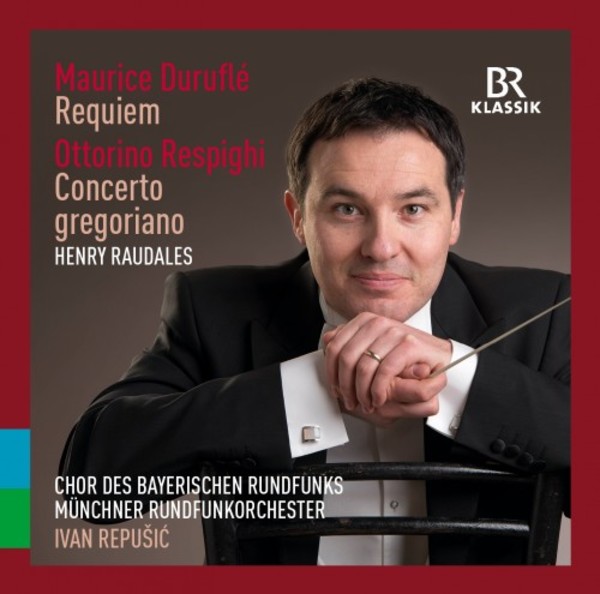
Durufle - Requiem; Respighi - Concerto Gregoriano
£13.25
In stock - available for despatch within 1 working day
Despatch Information
This despatch estimate is based on information from both our own stock and the UK supplier's stock.
If ordering multiple items, we will aim to send everything together so the longest despatch estimate will apply to the complete order.
If you would rather receive certain items more quickly, please place them on a separate order.
If any unexpected delays occur, we will keep you informed of progress via email and not allow other items on the order to be held up.
If you would prefer to receive everything together regardless of any delay, please let us know via email.
Pre-orders will be despatched as close as possible to the release date.
Label: BR Klassik
Cat No: 900320
Format: CD
Number of Discs: 1
Release Date: 1st September 2017
Contents
Artists
Okka von der Damerau (mezzo-soprano)Ljubomir Puskaric (baritone)
Uladzimir Sinkevich (cello)
Max Hanft (organ)
Henry Raudales (violin)
Chor des Bayerischen Rundfunks
Munchner Rundfunkorchester
Conductor
Ivan RepusicWorks
Requiem, op.9Concerto gregoriano, P135
Artists
Okka von der Damerau (mezzo-soprano)Ljubomir Puskaric (baritone)
Uladzimir Sinkevich (cello)
Max Hanft (organ)
Henry Raudales (violin)
Chor des Bayerischen Rundfunks
Munchner Rundfunkorchester
Conductor
Ivan RepusicAbout
Maurice Duruflé’s Requiem became especially well-known. Its first performance in 1947 was one of the high points of his career; the work not only helped to establish Duruflé as a successful composer but also brought him fame far beyond the borders of France. This self-contained, homogeneous and contemplative composition is based on themes from the Gregorian Mass for the Dead. In his work, Duruflé succeeded in fusing Gregorian chant, Baroque polyphony and colourful orchestration into a unified whole, and the spiritual, inward-looking character of the chants harmonises most effectively with the composer’s personal style.
The impact of Gregorian chant on the composer Ottorino Respighi was “like an addiction”, and it had a vast influence on his work. Elements of it can be heard in almost all the works he composed after 1920. One reason why these puristic melodies, in conjunction with the harmony of the ecclesiastical modes, fascinated him so much was that they represented the greatest possible contrast to the overheated, chromatically refined harmonies of the Verists and the post-Wagnerians. Becoming increasingly atonal was never an option for Respighi; it was in the archaic and austere character of Gregorian chant, and in ancient melodies, that he recognised the greatest innovative potential.
Live recording, 17 March 2017
Error on this page? Let us know here
Need more information on this product? Click here